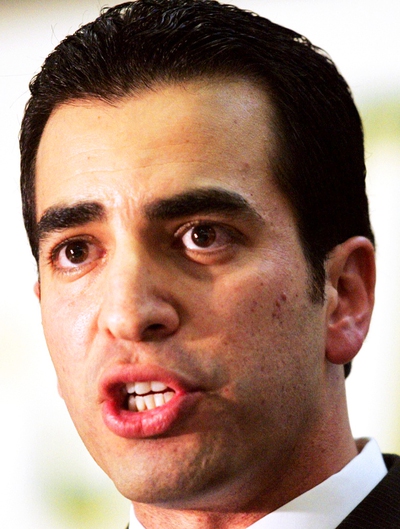Wednesday, Dec. 21, 2011 | 7:22 p.m.
WASHINGTON — Looks like Republicans aren’t the only party infighting over the issue of payroll tax cuts.
Nevada Democrats gunning for the House of Representatives in 2012 have been having a field day watching from home as the payroll tax and unemployment insurance debate plays out in Washington, and throwing blame from the sidelines at incumbent Republicans angling against a bipartisan interim extension of the expiring programs.
But now, one of the Democrats running for Nevada’s 1st Congressional District has brought the fight within party lines.
“I am glad to see that Dina Titus has changed her mind and now says she supports cutting payroll taxes for Nevada workers. Just a few months ago she adamantly stated on the radio that there were more important priorities than extending payroll tax cuts,” said Dan Chavez, a spokesman for state Sen. Ruben Kihuen’s congressional campaign. “I guess that was when she was planning to run in another district. It's a flip for Dina and a flop for families.”
Kihuen is the current underdog in a fight to represent the 1st District, where he’s facing off former 3rd District congresswoman Dina Titus for the Democratic nomination. The only poll of the race thus far — one commissioned by the Titus campaign — puts him at 11 percent to her 77 percent.
Titus put out a release at midday Wednesday calling on House Republicans “to quit playing partisan politics and reconvene to pass the middle class tax cut” or else “Nevada families will see a tax hike on January 1st at a time when they can least afford it.”
The Kihuen campaign is basing their charge on a September interview Titus did with the Las Vegas Sun, in which she expressed concerns about President Barack Obama’s jobs plan proposal’s payroll tax cut plan.
“I don’t think people realize what the payroll tax is, is a payment into Social Security,” Titus said in September. “That money might be better spent on infrastructure … if you extend the payroll tax now, that’s a cost.”
The payroll tax cut under Obama’s proposal was actually an expansion of the existing tax cut for workers and a new initiative for employers: it would have lowered the rate from the standard 6.2 percent to 3.1 percent for workers’ salaries up to $106,800 and employers’ payrolls up to $5 million. (The current, cut payroll tax rate that would be extended by the compromise bill is 4.2 percent.)
Obama’s proposal was not paid for. Current proposals shift money from the general fund to cover the loss to Social Security; the sticking point is where exactly the money being shifted should come from. Democrats want to bring in fresh funds through a millionaire’s surtax; Republicans want to increase Medicare premiums for millionaires, freeze salaries for the federal workforce and eliminate some government jobs.
That still is money that could be used to pay for things other than replenishing Social Security. Titus would not be the only Democrat to have expressed concerns about the precedent that expanding payroll tax cuts set for Social Security; it’s a sentiment Senate Democrats have expressed as well — though most in the end voted for the compromise bill that passed 89 to 10.
But Titus’s campaign manager says Kihuen’s charge is misrepresentation of the facts: she voted for the current payroll tax cut in 2010 when she was in Congress, and tweeted weeks ago that she was in favor of extending them as presented in the current Democratic proposals.
“They’re trying to stir up controversy that’s not there,” campaign manager Jay Gertsema said. “It just doesn’t make any sense.”
Meanwhile John Oceguera — who came out swinging with statements and press conferences on the payroll tax bill more than 24 hours before Titus — has been keeping up the steadiest cannonade of criticism, his focused on Republican Rep. Joe Heck, who he’s trying to unseat from the 3rd District in 2012.
“Make no mistake, Joe Heck's refusal to pass [the short-term bill] is a tax hike on Nevada's middle class,” Oceguera said. “It's a tax increase on 1.2 million working Nevadans, and 160 million folks across the country.”
Heck has maintained that he objects to the compromise because a two-month bill is a raw deal, and Congress should pass something longer-term.
“To do it for two months, what happens to that person who in February is looking for employment, what are they going to do? They don’t have a guarantee of their next unemployment check,” Heck told the Sun this week. “You can’t do patchwork in two month increments, that’s been the problem with this ... it basically pulls the rug out from underneath Nevadans.”




Join the Discussion:
Check this out for a full explanation of our conversion to the LiveFyre commenting system and instructions on how to sign up for an account.
Full comments policy